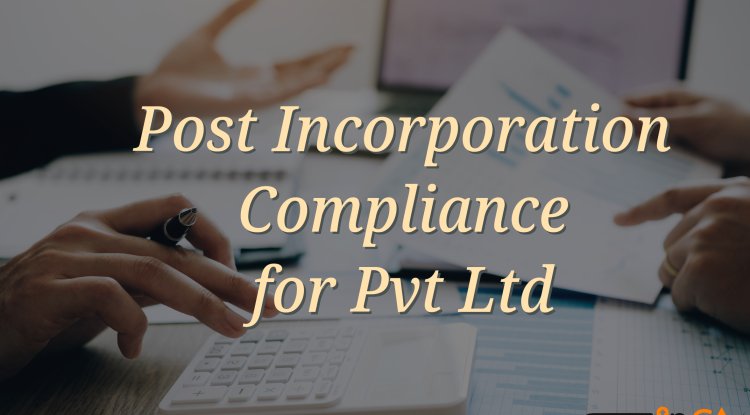The Right Time And Ways To Raise Funding
The goals, value proposition, and business model of the start-up, as well as the details of the finances, should be clear before initiating pre-seed funding.

The Right Time And Ways To Raise Pre-Seed Funding
For a startup to begin operations, it needs capital. This is known as pre-seed capital, which is the first attempt to gather financial backing for the startup to begin developing its business model product, service, minimum viable product (MVP), value proposition, and similar.
The usual sources for pre-seed funding are personal cash/assets and family and friends. However, there is an increasing trend of investors and other sources of pre-seed funding, including government programs, who are willing to commit to start-ups if they firmly believe in their vision, business model and more importantly, that the founder/founding team has the skills and dedication to take the vision from concept to reality. It is obviously important to secure pre-seed funding and usually spells the difference between boon or bane for a startup.
IDEAL TIME TO SEEK PRE-SEED FUNDING
Depending on the start-up, your product or service, the business model, and the experts to whom a founder talks, the ideal time to seek pre-seed funding will vary. In any event, founders should have a compelling elevator pitch, a clearly defined value proposition, business model, market opportunity, competition, barriers to entry, and should prepare their prototype or proof-of-concept pitches before seeking pre-seed funding before seeking pre-seed funding, especially from friends and families. Just like pitching any other type of investor just because they may be friends or family, that doesn't mean they're going to invest "just because" in your startup concept.
It is also essential to have a time frame for the next steps when looking for pre-seed financing because again, you need to treat investors who are friends and/or family just as you would any other type of investor.
The goals, value proposition, and business model of the start-up, as well as the details of the finances, should be clear before initiating pre-seed funding.
The amount of pre-seed funding needed, the overall costs needed to get the startup to the next stage (and how you plan to fund it and even profit projections are other items to consider, including when pitching friends and family. Also, ensure that the documentation is ready, from the correct type of incorporation papers, partnership agreements, and certificates.
FINDING THE RIGHT PRE-SEED INVESTORS
Not just any pre-seed investor, even if they're friends and family, will do that. I have entered into pre-seed rounds for friends and family investment that I immediately regretted. Actually, two of them were simply catastrophic. Just because you want cash, don't make the same mistakes I've made. You need to find the right one that fits the mission and vision of your startup, regardless of who you are approaching for a pre-seed investment.
It's sort of right to find the right pre-seed investor to find the right life partner. On many levels, you need to be compatible. You also need to be sure you are going to be able to work together.
Here are some other points to consider when choosing a friend and family (or any other type, for that matter) pre-seed investor:
- Pre-seed investors who believe in you are a must, as are your product or service and your business model. During the inevitable rocky times, they must commit to it enough that they won't leave or create unnecessary distractions.
- If you are seeking pre-seed funding from accredited investors, venture capital firms, or angel investors, if possible, seek those with experience in your field or sector so that they can offer advice or maybe you can even leverage some of their industry links, startups will encounter several struggles.
- Even if it's friends and family, find out how 'hands-on' they plan to be in your start-up before accepting pre-seed funding from any type of investor. If a micro-manager is your potential pre-seed funding investor and you can't work with that type of person, then you are far better off just walking away than accepting a pre-seed funding agreement from someone you are incompatible with.
SOURCES OF PRE-SEED FUNDS
There are many pre-seed investor types. Each has its strengths which can be harnessed by start-ups for their needs. In many instances, with your first round of pre-seed funding, how much you can accomplish can set the stage for how easy or difficult it will be to secure additional funding for your startup.
- Some startups are lucky to get by with a little help from their friends (and family).
- If you have an exciting concept, harnessing the power of people through a crowdfunding campaign will work. With over 500 crowdfunding websites around the world, $5 billion has been raised through this method. Among others, some of the top ones include Kickstarter; IndieGogo; and GoFundMe.
- An increasing number of Angel investors are interested in providing startups with pre-seed funding. To check them out, check out Angel. co.
- Some venture capital companies are doing what they call micro-venture funds that provide pre-seed financing for projects that are too small to attract the attention of ordinary venture capitalists. One of 250 micro-VC firms using this approach is the FloodGate Fund. On Crunchbase.com, you can find others.
- It is also necessary to consider corporations that offer seed funds for start-ups. For example, Google, FedEx Small Business Grants, and Intel provided start-up financing and in some instances, pre-seed capital to promising start-ups with cutting-edge innovations.
- Non-dilutive grants and business grants from the government. There are billions in non-dilutive government grants, business grants, and non-traditional funding tools of all kinds available to startups and businesses at all stages for startups in certain industries aligned with strategic state or national government interests. Grants.gov, SBIR.gov, and the Defense SBIR/STTR Innovation Portal, amongst others, are some of the best places to find these types of opportunities.
Tech startups are those who benefit tremendously from pre-seed funding in this day and age because they lead the way when it comes to innovation. But regardless of the sector, everything boils down to an exciting idea that will make it worthwhile for investors to commit their money.
Non-dilutive government grants, business grants, and non-traditional, government-backed non-dilutive funding are my specific areas of expertise. Interested in learning if your start-up is suitable for non-dilutive funding of this type?
What's Your Reaction?




















